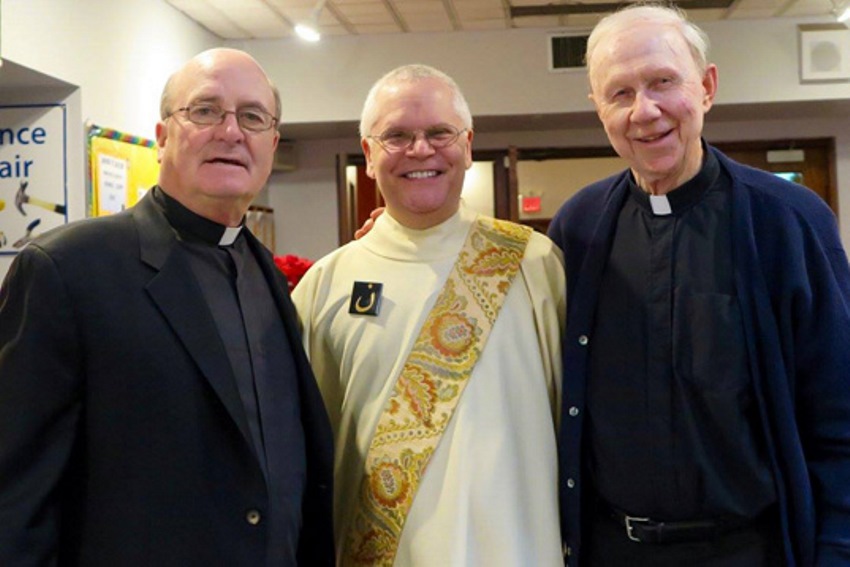Several years ago when I ran a weekly Bible Study, I would post my commentary on the Sunday Mass Readings. One of my friends who leads a weekly Bible Study is in Washington DC at the moment for the March For Life and has asked me to host the group in her absence.
Fortunately, I already had some notes for this coming Sunday’s readings, but I spent some time updating them in preparation for tonight’s discussion. So, in case you’re interested, here they are…
3rd Week of Ordinary Time
Opening Prayer
Lord, inspire me to read your Scriptures and to meditate upon them day and night. I beg you to give me real understanding of what I need, that I in turn may put its precepts into practice. Yet, I know that understanding and good intentions are worthless, unless rooted in your graceful love. So I ask that the words of Scripture may also be not just signs on a page, but channels of grace into my heart. Amen.
– Origen of Alexandria (2nd Century)
Introduction
Last week’s Readings focused on God’s call to us. In turn, this week’s Readings focus upon our response to Him, our vocation and mission. Oh yes…and fish.
Having before you many examples of sinners who repented and were saved, be you also earnest in confessing to the Lord, that you may receive pardon for past sins, be made worthy of the heavenly gift, and inherit the kingdom of heaven with all the saints.
– St. Cyril of Jerusalem (c. AD 386)
In the First Reading we hear of how Jonah (eventually) responded to God’s call and then how the people of Nineveh responded to God through the message of His Prophet.
In the Gospel we hear Jesus’ message: repent and believe for the Kingdom is at hand. He calls four fishermen to come and follow him, simple men who, later when He is gone, will become great pillars in His Church.
Readings
Reading I: Jonah 3:1-5, 10
Book Facts:
- Set in the reign of Jeroboam II (786–746 BC), it was probably written in the post-exilic period, some time between the late 5th to early 4th century BC.
- Unlike the other Prophets, the book of Jonah is almost entirely narrative, with the exception of the psalm in chapter 2
Jonah is sometimes known as “The Reluctant Prophet”. He did not want to go and preach to the people of Nineveh but did everything he possibly could to get out of his divinely-appointed assignment. In fact, he fled in the opposite direction! However, after his little stay in the belly of a sea creature he undertook the task that God had originally assigned him. The ideogram for Nineveh rather amusingly means “place of fish”. It would appear that the man who was once fish food was to now become a fisherman…
Full Text:
The word of the LORD came to Jonah, saying: “Set out for the great city of Nineveh, and announce to it the message that I will tell you.” So Jonah made ready and went to Nineveh, according to the LORD’S bidding.
Now Nineveh was an enormously large city; it took three days to go through it. Jonah began his journey through the city, and had gone but a single day’s walk announcing, “Forty days more and Nineveh shall be destroyed,” when the people of Nineveh believed God; they proclaimed a fast and all of them, great and small, put on sackcloth.
When God saw by their actions how they turned from their evil way, he repented of the evil that he had threatened to do to them; he did not carry it out.
Questions:
- What is the background to this week’s First Reading? What happened beforehand? Had Jonah wanted this mission?
- Where was Nineveh? What does this tell us about God?
- What does it mean to be a prophet?
- What did Jonah preach? What is the significance of “Forty days”?
- What is the result of his preaching? What does this tell us about free-will? What is the significance of the people’s actions? What place do these actions have in the liturgical life of the Church?
- What is God’s response? What does this tell us about God? What does it mean when we say that God “repented”? Surely God does no “evil”?
- What happens in the story after this? What can we learn from it?
- When is Jonah mentioned in the New Testament? In what context?
Commentary:
The word of the LORD came to Jonah, saying: “Set out for the great city of Nineveh, and announce to it the message that I will tell you.” So Jonah made ready and went to Nineveh, according to the LORD’S bidding.
To be a prophet is to speak on behalf of God, rather than necessarily to predict the future. In this case Jonah is doing both – he is delivering a message on behalf of God and telling the Ninevites of a possible future if they continue on their current course.
It is worth noting that Nineveh was not in Israel, but the capital of Assyria, Gentile land. Assyria had destroyed Israel in 721 B.C. From this we can see that, even in the days of Jonah, Yahweh was concerned with the lives of those outside of His people of Israel.
In the New Testament Christ compares Himself to Jonah when speaking of his Death and Resurrection:
[Jesus] answered, “A wicked and adulterous generation asks for a sign! But none will be given it except the sign of the prophet Jonah. For as Jonah was three days and three nights in the belly of a huge fish, so the Son of Man will be three days and three nights in the heart of the earth. The men of Nineveh will stand up at the judgment with this generation and condemn it; for they repented at the preaching of Jonah, and now something greater than Jonah is here. The Queen of the South will rise at the judgment with this generation and condemn it; for she came from the ends of the earth to listen to Solomon’s wisdom, and now something greater than Solomon is here. – Matthew 12:39-42
In Jonah we see a “type” of Christ. Not only in Christ’s resurrection, but in the proclamation of the Gospel to the Gentiles.
Read more



 Today’s song is “In the silence” by
Today’s song is “In the silence” by 

 In case you missed the President’s speech at the March For Life…
In case you missed the President’s speech at the March For Life…